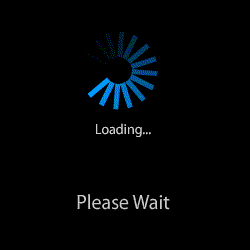|
Have you ever felt separated from your body or your surroundings? Lost track of chunks of time and can't explain what happened? Found yourself in an unfamiliar location without knowing how you got there? If so, you may have experienced dissociation, or what I like to call "interrupted awareness." Dissociation is closely related to trauma. I will outline below some key features of this experience and what to do about them. 1. To dissociate involves mentally separating from the sense of real world experience for a period of time, usually because what is happening in the moment is intolerable, painful, or disturbing. This can include actual painful events or flashbacks to events that happened in the past. It's important to try to stay grounded in the present during these experiences by keeping your eyes open, and reminding yourself of your surroundings. In its most basic form, dissociation is a normal cognitive response when the nervous system is overwhelmed by outer stimuli. For instance, say you are riding your bike and hit something in the road causing you to fall and hit your head on the pavement. You might feel stunned and confused as you try to stand up. You may feel briefly disconnected from the outer world, as you piece together what just happened. You may feel like you are inside a dream. This is a natural response to an unexpected frightening event, as your brain attempts to process complex and overwhelming information, including the emotional fear response and the physical sensations of injury. The brain attempts to buffer the experience for you. 2. Dissociation is usually a result of past trauma that was repetitive in nature. Just how falling off a bike one time may produce a brief dissociative experience as the brain recovers, more severe and persistent trauma will likely produce a dramatic dissociative experience. Persistent trauma endured over long periods of time like childhood abuse and neglect, particularly when the perpetrator was/is a caregiver, often produces the more difficult forms of dissociation that endure over time and impede your ability to live your life day to day. You may have frequent flashbacks to your trauma that catch you off-guard at work or school. You may have difficulty remembering what's happened to you, and lose track of bits of time in your day. You may not be able to piece together your life story they way other people do. Trauma is best treated with a qualified professional who is trained specifically to help manage its long term effects. Trauma therapy is not always about going back in time and re-telling the story (or stories) of what happened to you. In fact, sometimes retelling the stories can be inadvertently re-traumatizing. Rather, the goal of therapy is to help you live the best you can in the present, to integrate your trauma experiences into your identity in a meaningful way, and to help you move forward by taking action according to your personal values. 3. In some cases, discrete identities are formed within the individual. This is called dissociative identity disorder (DID), or what used to be called multiple personality disorder (MPD). It's estimated that about 1-3% of the general population experience DID, and cases have been documented all over the world. DID occurs usually when the age of onset of abuse or trauma was younger than 5 years old and it recurred frequently throughout the developmental phases of childhood and adolescence. In normal development, as children grow and change, they integrate new experiences of themselves with old ones, creating a solid, unified identity based on the whole of their experiences. However, when disturbing, frightening and dangerous experiences are repeatedly in the developing child's environment, parts of his or her identity are fragmented and compartmentalized as dissociation occurs. Because these experiences are not a unified whole, the personality lacks unification, and distinct states of being may emerge. Many people with DID have the feeling of a child inside of them, perhaps a vulnerable adolescent, perhaps an angry young adult, and so on. In studies performed with diagnosed DID clients, discrete changes in heart rate and breathing pattern are seen as different identities emerge, suggesting that dissociation is both a psychological and biological process. 4. Amnesia often accompanies dissociative experiences, whereby you may not remember large portions of information about yourself, about specific events, or about specific periods of time. Sometimes people will travel away from their familiar environments during dissociation, called a dissociative fugue. Fugues can be dangerous since traveling to unfamiliar surroundings can compromise personal safety. When these events occur, you may "come to" in a place you've never been and have no idea how you got there, how long you've been there, or why you went there. It can help to talk to a trusted friend or family member and ask them to help you keep track of yourself and your daily activities. A check in text message at a crucial time of day, or an email check in at night or in the mornings from a trusted support person in your life will help you stay grounded through amensia or fugues. 5. Dissociation is by nature confusing and disorienting. If you've ever tried to maintain a job, a home, a family, friends while consistently losing your sense of self inside your body, losing large portions of your memory of everyday experiences, or feeling that someone else is controlling your body or mind, then you know how difficult untreated dissociative disorders can be to live with.
The good news is that treatment for dissociation exists and more research is being done every day to learn how to best manage it. Professional counselors, psychologists, psychiatrists, and social workers are good resources to help you manage your symptoms. Many forms of psychotherapy have proven helpful for dissociative disorders, including cognitive behavioral therapy (CBT), acceptance and commitment therapy (ACT), and trauma sensitive yoga. Medications are sometimes, but not always used as treatment. Specialized assessments and phases of treatment have been developed for these disorders. In summary, dissociation is treatable and not as uncommon as you may think. A therapeutic alliance with a trusted professional can help return you to connected awareness. It may not be a simple or easy process, but is it possible! Find treatment options and trauma counseling at Flourish.
Abi
12/23/2015 05:29:06 pm
I think this is a great website and an amazing two counselers ever. I have known Kambria forever she is my mom!!! Love you mommy Comments are closed.
|
AuthorKambria Kennedy-Dominguez, LPC-S |
Phone: 972.755.9120 | Fax: 214.723.5345
533 W. 12th Street Dallas, TX 75208
Privacy Policy Good Faith Estimate
©Flourish Counseling and Consultation PLLC 2024
533 W. 12th Street Dallas, TX 75208
Privacy Policy Good Faith Estimate
©Flourish Counseling and Consultation PLLC 2024



 RSS Feed
RSS Feed
